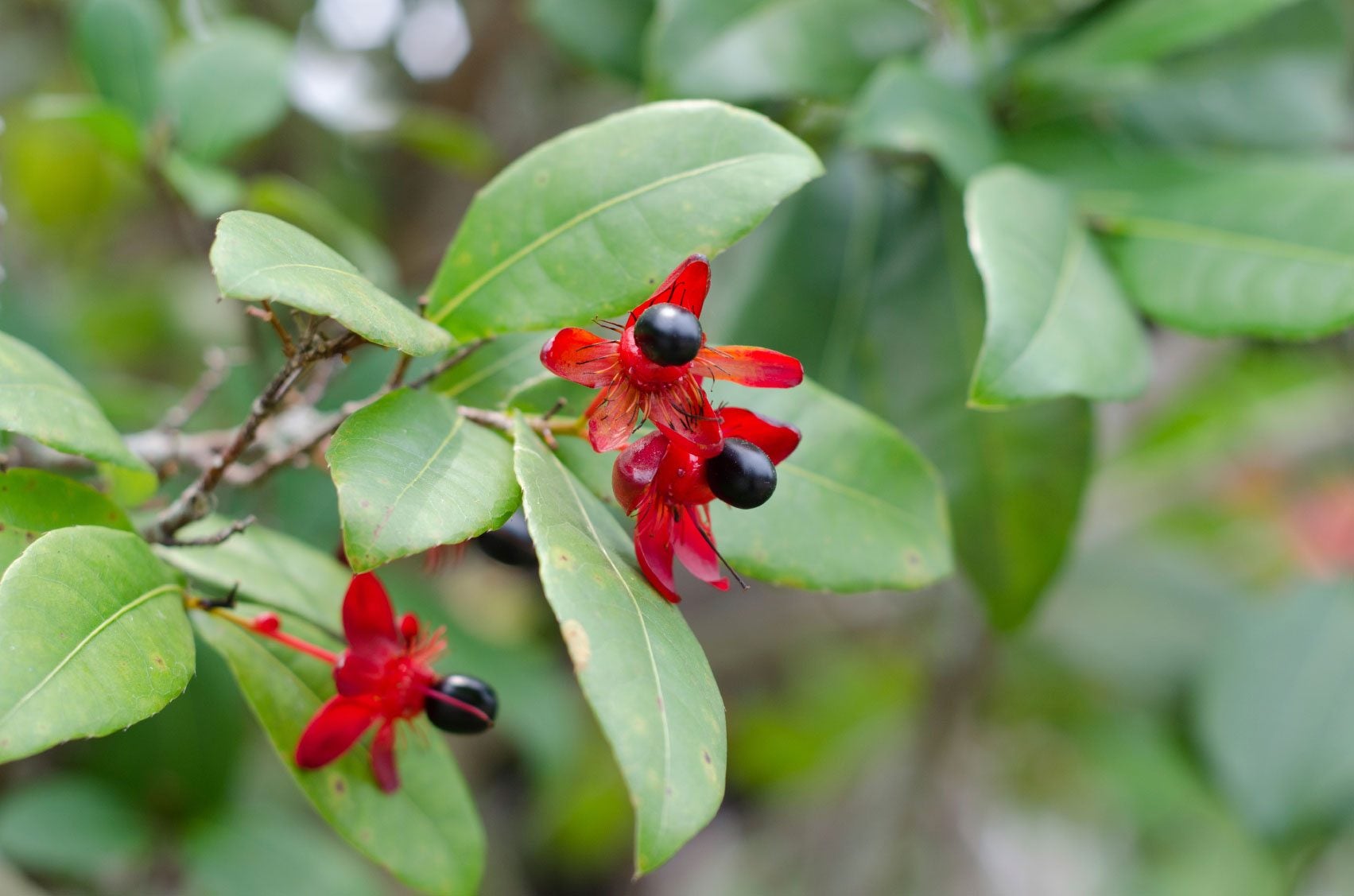Growing Mickey Mouse Plants: Information About Mickey Mouse Bush


Mickey Mouse plant (Ochna serrulata) is named not for the leaves or blooms, but for the black berries that resemble the face of Mickey Mouse. If you want to attract butterflies and bees to your garden, Mickey Mouse plant is a good choice. The plant is suitable for growing in climates where temperatures never drop below 27 degrees F. (-2 degrees C.).
What is a Mickey Mouse Plant?
Mickey Mouse plant, native to subtropical southern Africa, is also known as carnival bush, Mickey Mouse bush, or small-leaved plane. The plant is a small, semi-evergreen shrub that reaches mature heights of 3 to 8 feet (1-2 m.). The plant loses its shiny green leaves in spring, but they are soon replaced with new, pink-flushed foliage. Sweet-smelling yellow blooms form at the tips of the branches in spring. The flowers don't last long, but the petals soon turn bright red, which cover the plant in early summer. Shiny black berries are suspended from these petals.
How to Grow Mickey Mouse Plants
Growing Mickey Mouse plants isn't difficult. Although it grows in nearly any well-drained soil, it thrives in soil that is amended with compost or other rich organic material. Mickey Mouse plant tolerates either full sunlight or partial shade. Mickey Mouse plant care is minimal given suitable conditions. Although the plant is drought-tolerant, it is stressed by extended dry periods. An occasional pruning after fruiting keeps Mickey Mouse plant neat and shapely. The plant is often distributed by birds that eat the seeds and, in some cases, can become weedy. If this happens, you can leave the plants wherever they pop up, or you can dig them up and move them to another desired location. Keep in mind that the seeds may be poisonous. Therefore, plant carefully if you have children or pets.
Mickey Mouse Plant Uses
Mickey Mouse plant is a good border plant, or you can trim a row of shrubs and turn them into a hedge. The plant does well in rock gardens and is easily grown in containers. Additionally, the plant fits well in a wildflower garden. Since it tolerates wind and sea spray, it is also a good choice for a coastal garden.
Sign up for the Gardening Know How newsletter today and receive a free copy of our e-book "How to Grow Delicious Tomatoes".

A Credentialed Garden Writer, Mary H. Dyer was with Gardening Know How in the very beginning, publishing articles as early as 2007.